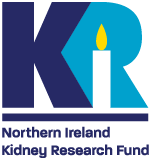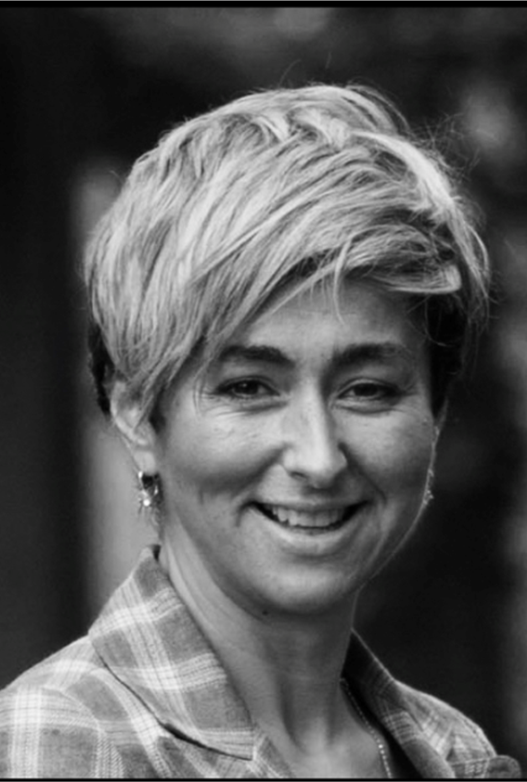
Dr Carolyn Blair
Dr Carolyn Blair is an experienced Research Fellow in the School of Nursing and Midwifery at Queen’s University Belfast (QUB), working with Professor Joanne Reid and the International, Multidisciplinary Cachexia Team led by Professor Reid.
Relevant to multimodal interventions for cachexia management, Dr Blair’s PhD was focused on eating related difficulties and family dynamics. She has extensive experience of designing, delivering and evaluating psychosocial interventions and is a qualified fitness instructor specialising in resistance training.
Dr Blair has a strong background in Personal, Public Involvement and Engagement (PPIE) in research, and in collaboration with Professor Reid is currently organising PPIE activities to help develop psycho-social support for patients and their caregivers in relation to renal cachexia.
Dr Blair has completed Cochrane systematic review training and has published (inc. in press): 4 systematic reviews, 3 systematic scoping reviews, 4 mixed methods studies, 3 qualitative studies, 2 participatory research studies, 2 rapid evidence reviews, 1 protocol, and a cross-sectional study.
Dr Blair is the lead researcher on a phenomenological study exploring the experiences of individuals with renal cachexia and their caregivers, and the lead researcher on a QUB/Marie Curie project exploring loneliness in terminal illness. In collaboration with Professor Reid and the International Team, Dr Blair is currently leading a novel theory of change publication related to developing an evidence and theory based multimodal integrative intervention for the management of renal cachexia.

Dr Kate Mullan
I am an academic paediatric trainee with a passion for paediatric nephrology. As an Academic Foundation doctor, I gained experience in research methodology, critical appraisal, and meta-analysis, drawing on the skills and competencies gained in my undergraduate master’s studies.
In my academic clinical fellowship in Paediatric Nephrology this year, I look forward to developing my interests and bringing my clinical experience and research questions from my training into academia.
I am passionate about improving long-term outcomes for patients facing challenges at re-transplantation. Securing an academic clinical fellowship in paediatric nephrology, I am investigating the effects of HLA eplet mismatch on immunotoxicity, graft survival, and matching potential. Collaborating with adult and paediatric nephrology teams in the UK and Ireland has enhanced our research impact. Patient involvement is invaluable for effective research translation addressing priorities of the highly sensitised children affected. Focusing on the downstream effects of donor matching policies, I aim to inform decision-making with a lifelong strategy for paediatric end-stage kidney disease.

Dr Michael Toal
Dr Michael Toal is a Specialist Trainee in Renal Medicine and NIKRF Doctoral Fellow. Dr Toal started a PhD in Queen’s University of Belfast in August 2022.
This research project will investigate IgA Nephropathy, a leading cause of kidney failure, particularly in young people. Dr Toal is aiming to find new strategies to help to identify patients at the highest risk and allow for early treatment and prevention of disease progression. His previous projects have been presented across the UK, the Republic of Ireland and in the United States.
Dr Toal is also the team doctor for Transplant Sport NI and attended the British Transplant Games in Leeds with around thirty athletes from Northern Ireland in July 2022.
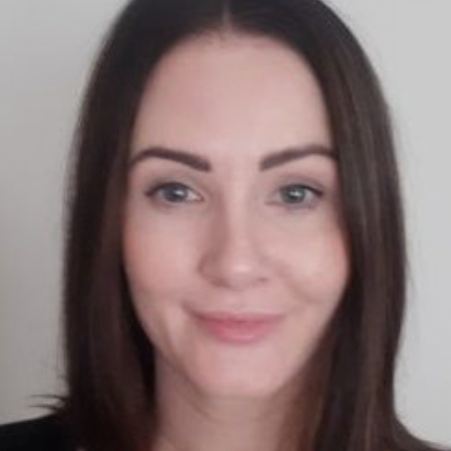
Dr Clare McKeaveney
Dr Clare Mckeaveney (BSc, PhD, MBPsS, CPsychol, AFHEA) is a psychologist and renal researcher, exploring the intersection of psychological dynamics and renal health.
Clare has been a Lecturer at the School of Nursing and Midwifery, Queen’s University Belfast, since 2021. She possesses a rich background in quantitative and qualitative research methodologies. Her work seeks to illuminate the psychosocial impact of renal disease across a diverse range of topics including cachexia, transplantation, and the global implications of COVID-19 within the renal healthcare community.
Clare and her team are working on a new grant awarded by the Northern Ireland Kidney Research Fund to enhance patient education in kidney disease and transplantation, exemplifying a holistic approach to healthcare advancement.
Publications:
Corr, M., McKeaveney, C., Wurm, F., Courtney, A. E., & Noble, H. (2023). The Educational Needs of Adolescent and Young Adult Renal Transplant Recipients-A Scoping Review. Healthcare (Basel, Switzerland), 11(4), 566. https://doi.org/10.3390/healthcare11040566
Blair, C., Slee, A., Davenport, A., Fouque, D., Johnston, W., Kalantar-Zadeh, K., Maxwell, P., McKeaveney, C., Mullan, R., Noble, H., Porter, S., Seres, D., Shields, J., Swaine, I., Witham, M., & Reid, J. (2022). Developing an Evidence and Theory Based Multimodal Integrative Intervention for the Management of Renal Cachexia: A Theory of Change. Healthcare (Basel, Switzerland), 10(12), 2344. https://doi.org/10.3390/healthcare10122344
McKeaveney, C., Noble, H., Courtney, A. E., Griffin, S., Gill, P., Johnston, W., Maxwell, A. P.,
Teasdale, F., & Reid, J. (2022). Dialysis, Distress, and Difficult Conversations: Living with a Kidney Transplant. Healthcare (Basel, Switzerland), 10(7), 1177. https://doi.org/10.3390/healthcare10071177
Wilson, A., McKeaveney, C., Carswell, C., Atkinson, K., Burton, S., McVeigh, C., Graham-Wisener, L., Jääskeläinen, E., Johnston, W., O’Rourke, D., Reid, J., Rej, S., Walsh, I., McArdle, M., & Noble, H. (2022). Examining the Acceptability and Feasibility of the Compassionate Mindful Resilience (CMR) Programme in Adult Patients with Chronic Kidney Disease: The COSMIC Study Protocol. Healthcare (Basel, Switzerland), 10(8), 1387. https://doi.org/10.3390/healthcare10081387
Wurm, F., McKeaveney, C., Corr, M., Wilson, A., & Noble, H. (2022). The psychosocial needs of adolescent and young adult kidney transplant recipients, and associated interventions: a scoping review. BMC psychology, 10(1), 186. https://doi.org/10.1186/s40359-022-00893-7

Dr Michael Corr
Michael graduated from medicine at Queen’s University Belfast in 2016 with an additional BSc in Medical Science. He entered Nephrology Higher Specialty training in 2020. In 2021 he graduated with a MSc in Clinical Education.
Michael has a long-held interest in research and in 2022 decided to combine his ongoing clinical nephrology training with formal academic/research training. He was appointed to the prestigious Irish Clinical Academic Training (ICAT) programme which has funded his PhD studies at Queen’s University Belfast with collaborators from Galway University and University College Cork. Michael is researching why kidney transplants fail more commonly in young people.
NIKRF have awarded Michael additional funding to support his PhD research, allowing him to use cutting edge technology and methods to explore this important clinical problem.
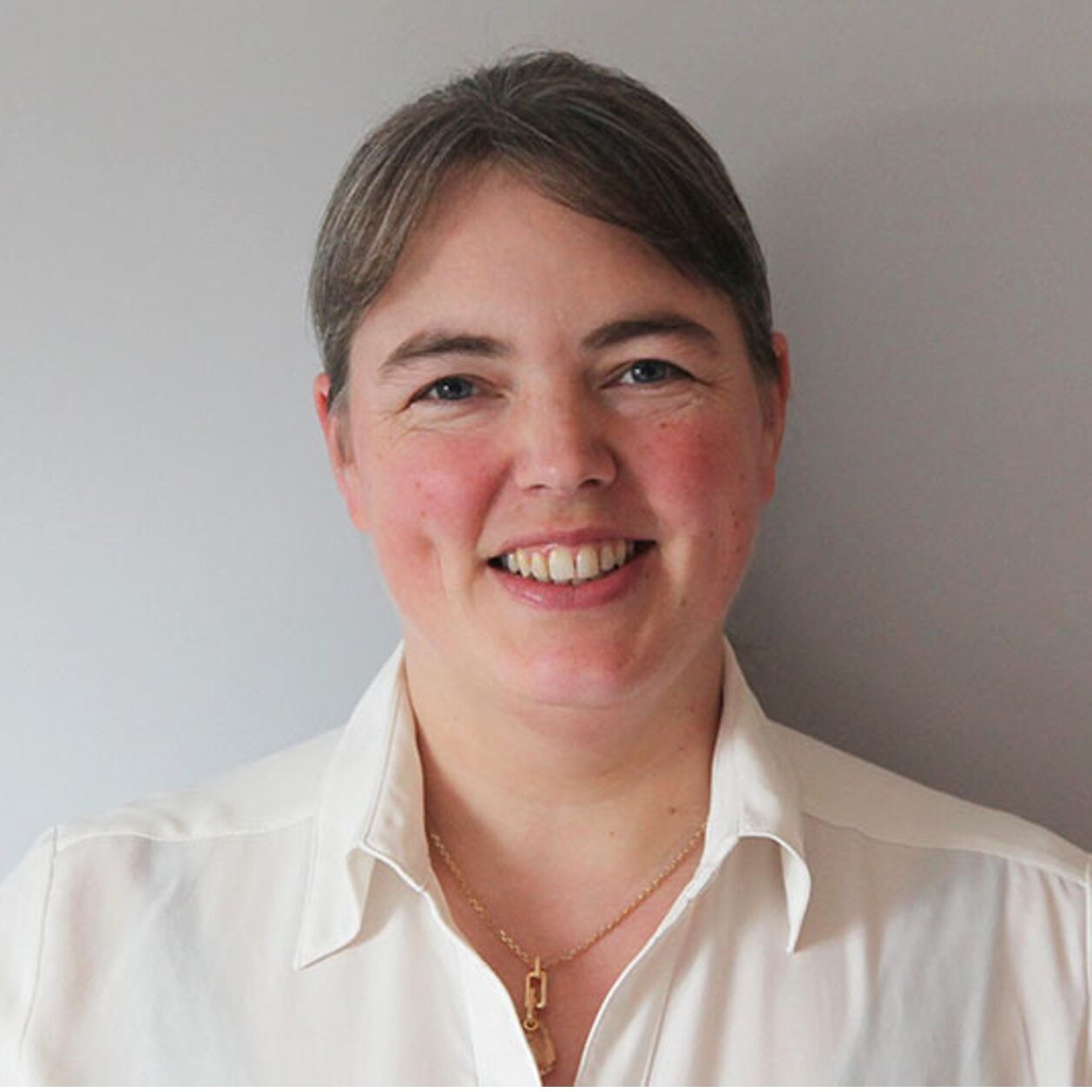
Professor Amy Jane McKnight
Hello, my name is AJ & I’m a scientist. I love solving puzzles, or at least finding individual pieces that help make a picture complete. Discovering the best approach, finding the right evidence to drive changes in health and social care, sharing understanding, knowledge, and supporting the next generation are key driving forces. I’ve been fortunate to have received support from The Northern Ireland Kidney Research Fund that helps us learn more about kidney disease. Link to short video showcasing some of our team’s kidney research: https://youtu.be/6Ifc3KCU8W0
I graduated from The University of Aberdeen in 2000 & came home to NI with a PhD studentship funded by the NI Department for the Economy researching genetic risk factors for diabetic kidney disease with Professor Peter Maxwell and Dr David Savage. I got the bug for kidney research and was generously funded by the NIKRF for a postdoctoral fellowship (2003), during which I also completed a Masters degree with distinction in Bioinformatics at the University of Manchester and a postgraduate certificate with distinction at the University of Leeds. In 2006 I started as QUB’s first Lecturer in Bioinformatics, becoming tenured in 2009, and moving relatively quickly through Senior Lecturer, Reader and Professorial roles. Life wasn’t quite a straightforward as it seems – my family life is complicated and I’ve had a series of personal health complications that naturally disrupted research. For example, in 2015 I had a spinal injury and was paralysed from the waist down for a while…2018 I had cerebral oedema (excess fluid on the brain)…2020 the COVID-19 pandemic was declared so our molecular labs were repurposed to facilitate sample reception and staff seconded to help deliver COVID-19 testing…2021 my daughter was born earlier than expected…perhaps it is not surprising I’m a strong advocate for including voices from people with lived experience and flexibility in the workplace!
Today, I run a busy multidisciplinary research team. I co-Lead the Epidemiology and Public Health research team within the Centre for Public Health at QUB, which has ~30 staff and I am also the Director for Postgraduate Research within the School of Medicine, Dentistry and Biomedical Sciences at QUB. I (mostly) love my job. There are always challenges to meet, I get to work with superb local and international colleagues making new discoveries, and best of all, I see the real impact that research funded in Northern Ireland has on our local population.
Three major research achievements:
- Helping drive forward progress for rare kidney diseases in Northern Ireland, including delivering research that informed the NI Rare Disease Action Plan. That includes helping deliver new diagnoses for kidney patients with inherited kidney disease. More of our Rare Disease Research.
- Identifying new clinical, environmental, and biological features that help identify people at higher risk of developing kidney disease and / or progressing to end stage kidney disease.
- Bringing together networks of experts to help answer critical questions for kidney disease, including setting research priorities with people who have lived experience of diseases, having people with lived experience as formal investigators on funded grants, and setting up All Ireland adult, children and young person’s rare disease advisory groups.
Direct funding from NIKRF has supported the:
- Purchase of state-of-the-art equipment, without which many of the discoveries for inherited risk factors for kidney disease in NI would not have been possible.
- Potential for seed funding that helps generate pilot / preliminary data, making us more successful securing funding for larger-scale international research.
- Next generation of kidney researchers in NI, helping us build a critical mass of researchers with diverse skills interested in kidney disease. NIKRF provides valuable training support for clinical and scientific focused junior colleagues. Colleagues who have benefitted from this support include:
- Dr Diane Currie for a PhD studentship – Diane helped identify novel genetic markers associated with kidney disease, obtained five publications from her PhD project (2007-2010), and is now a School teacher, conveying her enthusiasm for science to the next generation of students.
- Dr Laura Smyth for postdoctoral fellowship support – Laura identified many biological markers associated with kidney disease, is now a lecturer at QUB (2023), and plans to have three PhD students working on kidney research from October 2024.
- Tiernan Coulter for a summer studentship -> Tiernan explored associations with telomere length and kidney disease. He has two publications from his summer project and received a scholarship for a Masters degree (2023).
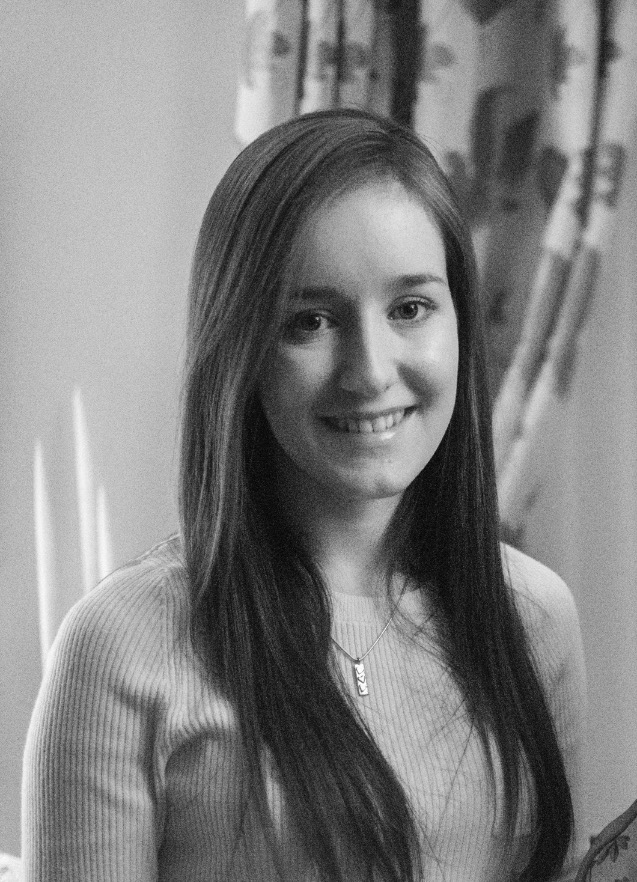
Dr Laura Smyth
Dr Laura Smyth PhD BSc is a recipient of a post-doctoral research fellowship funded by the NIKRF. NIKRF have supported Laura for several years whilst she researches links between DNA methylation (an epigenetic feature linking a person’s lifestyle such as diet, medication, exercise, to inherited factors from their parents) and kidney diseases.
Laura uses data ascertained as part of the Northern Ireland Cohort for the Longitudinal study of Ageing (NICOLA), which is a large-scale population-based long-term public health study. She is maximising existing resources to cost-effectively examine multiple measures of renal function and evaluate >850,000 unique methylation sites in the genome for association with kidney disease. Using the latest technology, she aims to identify biomarkers to help earlier diagnosis and in time, be able to track how biomarkers change as kidney disease progresses.
Links to Laura’s research papers:
https://www.ncbi.nlm.nih.gov/pmc/articles/PMC9780337/

Dr Samuel Bell
Samuel is a current Specialist Trainee in Renal Medicine. He graduated from Queen’s University Belfast in 2017 having completed an intercalated Masters in Translational Medicine also during his undergraduate medical training.
He began his Specialty Training in August 2022 and has developed an interest in glomerulonephritis and transplantation – particularly how primary glomerular diseases can recur in transplant.
He is interested in research and medical education.

Dr Karen McConnell
Dr. Karen McConnell is a Lecturer in the School of Nursing and Midwifery, Queen’s University Belfast.
She is a physiotherapist by background and previously worked clinically as a clinical specialist paediatric physiotherapist. Karen’s doctoral research evaluated management of the upper limb in children with cerebral palsy.
Her current research interests include improving physical activity and inclusion for children and young people with disabilities and long-term conditions across the lifespan.

Professor Joanne Reid
Joanne Reid is a Professor of Cancer and Palliative Care within the School of Nursing and Midwifery, at Queen’s University Belfast. Additionally, Joanne is a global nurse consultant in palliative care with the International Council of Nurses/CGFNS and also holds a director position on the board of the All-Ireland Institute of Hospice and Palliative Care.
Joanne has conducted multi-disciplinary national and international funded studies and her publications reflect the international multi-disciplinary teams she leads (Joanne Reid – Research output — Queen’s University Belfast (qub.ac.uk). Her research has been cited in evidence-based guidelines developed to translate current best evidence into recommendations for multi-disciplinary teams responsible for the identification and treatment of reversible elements of cachexia and improvement in quality of life for both patients and their carers.
Joanne has received several awards for her research including the Royal College of Nursing, Nurse of the Year Research award. Additionally, she was named as an international pioneering palliative nurse in 2021 by St Christopher’s Hospice London, recognised globally as a beacon of palliative care excellence. In 2022 was awarded a Royal College of Surgeons in Ireland (RCSI) Fellowship Ad Eundem in recognition of her leadership and contribution to nursing research within the field of cachexia.

Dr Anne Meaklim
My name is Anne Meaklim, an anaesthetist with a focus on advancing renal transplant anaesthesia and multidisciplinary care in Northern Ireland. My background as an anaesthetist and clinical educator, combined with my Postgraduate Diploma in Clinical Education, has equipped me with the skills necessary to contribute meaningfully to this field. My work has been recognised through awards and presentations at international conferences, reflecting my commitment to patients through clinical innovation.
Over the next few years, I will be working clinically as part of the renal transplant team in Belfast, and also taking part in the REDEFINE DGF study with Queen’s University Belfast, which aims to establish a patient-centred definition of delayed graft function (DGF) in renal transplantation through both Delphi methodology and retrospective cohort data collection.
As the Janet Greeves Fellow, I aim to develop and train future multidisciplinary transplant team members, building local capacity and ensuring the highest standards of care. My experience in anaesthesia and medical education will help shape the future of renal transplantation in Northern Ireland, promoting a collaborative, evidence-based approach that will optimise patient outcomes and strengthen the region’s transplant services.

Helena Brown
As a retired Department of Health policy official, I wondered how to continue contributing to public health. Luckily QUB and the NIKRF rescued me and I started my PhD in October 2024, exploring the potential for creative, performing, and immersive arts to maximise participation of children with a rare disease in clinical research; becoming aware that all kidney disease in children is in fact a rare disease. The first discovery of my new journey!
Children in Northern Ireland have few opportunities to take part in clinical trials and research studies, especially those focused on kidney conditions. Part of my project is to understand why this local gap exists and identify the barriers to participation; then develop a range of resources to raise awareness and improve recruitment by developing flexible templates and models that can be adapted to different conditions.
My main focus is to encourage children and families with rare kidney diseases to become involved in clinical research, including clinical trials. Since trials for childhood kidney conditions are not routinely available in Northern Ireland, the first stage of my project will involve partnering with a group already experienced in this area, for example respiratory medicine. Using a co-design approach, we will work with patients, families, and professionals to develop and test the outputs through workshops, discussion forums, surveys, and other interactive activities. This project directly aligns with both the LifeArc-Kidney research UK Centre for Rare Kidney Diseases and the LifeArc Centre for Acceleration of Rare Disease Trials.
I welcome communication from anyone keen to become involved in my work, for example people in creative arts; parents or carers of children who have taken part in trials or studies, as well as those who have not taken part but are interested in learning more; volunteers for workshops and engagement events; primary and secondary schools interested in the project; educators or students seeking collaborative opportunities; experts or interested parties wishing to help with behaviour and cultural change. My email address is mbrown83@qub.qc.uk
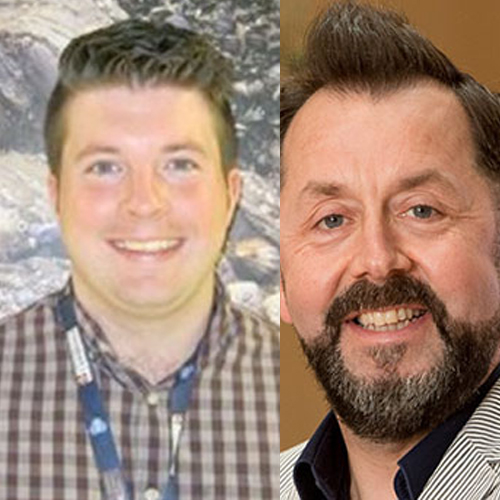
Dr. Sam Lockhart and Dr. Derek Brazil

Sarah Louise Brown
I am a PhD research student at Queen’s University Belfast under the supervision of Professor AJ McKnight, Professor Iain Styles, and Professor Louise Oni, kindly supported by the Northern Ireland Kidney Research Fund (NIKRF).
I completed my BSc (Hons) in Biomedical Science in 2024 and finished my MSc in Cancer Medicine in 2025 at QUB. Throughout my studies, I have seen how research directly influences real clinical decisions, and I am strongly motivated to contribute to the improvement of kidney disease diagnosis and treatment.
My fascination with the kidney began during A-Level Biology, where I was first introduced to the renal nephron. My curiosity only deepened throughout my undergraduate studies as I learned how the kidneys maintain balance across the body’s systems, and even small disruptions can affect health far beyond the kidney itself. That complexity, and the way every part of the body depends on it, defined my interest in nephrology.
Considering the molecular, clinical and real-world impacts of renal disease it is clear that kidney replacement therapies, such as dialysis or transplants are often lifesaving, but they are rarely curative. The limited, frequently non-specific treatment options available has motivated my research focus – to develop our understanding of the underlying biological mechanisms of kidney disease, improve diagnosis, and help shape more effective therapies. Rare kidney diseases (RKD) include more than 150 different conditions. Although each is uncommon alone, together they represent around 10% of people living with chronic kidney disease. Patients with an RKD are much more likely to progress to kidney failure than those with more common forms of the condition. In fact, around one in four adults, and more than 50% of children receiving kidney replacement therapy are living with a rare kidney disease.
My research project aims to integrate multiomic datasets to improve our understanding of these rare kidney conditions, and bridge diagnostic gaps to support more targeted treatment strategies, and ultimately improve outcomes for patients living with RKD.

Dr Stephen Kelly, Senior Lecturer in School of Pharmacy, Queen’s University, Belfast
Project Title ‘Early Detection and Pre-Emptive Management of Urinary Tract Infection and Renal Catheter-related Sepsis’
This project aims to detect urinary tract infections in kidney transplant patients much earlier, giving doctors more time to make informed treatment decisions and prevent serious complications. This will be done by examining the DNA of bacteria which cause UTI, as well as developing 3D-printed colour sensors that detect gas produced by bacteria in urine. We will also use machine learning methods to optimise treatment of UTI, helping us to select the best antibiotic more quickly, ensuring the most effective treatment is administered sooner. We believe these approaches could lay the groundwork for rapid, patient-friendly tools to prevent and better manage serious infections following kidney transplant.

Dr Taranjit Singh Rai, Ulster University
Dr Taranjit Singh Rai is a Senior Lecturer in Cellular Ageing and the Principal Investigator of the Senescence and Chronic Disease Research Group at Ulster University’s Personalised Medicine Centre.
His research focuses on translating fundamental ageing biology into precision diagnostics for kidney disease, with a particular emphasis on identifying individuals at highest risk of progression from acute kidney injury (AKI) to chronic kidney disease (CKD).
Dr Rai leads the development of two AI-driven diagnostic platforms. NephroNet integrates blood-based senescence biomarkers with clinical data to predict an individual patient’s kidney function trajectory up to one year in advance, enabling earlier and more personalised intervention for people living with chronic kidney disease (CKD).
AKINet focuses on patients who experience acute kidney injury (AKI) and accurately identifies those who are most likely to progress to CKD following an AKI episode: an area of major unmet clinical need.
His work bridges clinical medicine, bioinformatics, and proteomics, and has secured innovative funding including peer-reviewed awards and global decentralised science (DeSci) support.
This research aims to improve patient outcomes and reduce the burden of kidney disease across Northern Ireland and beyond.

Dr. Karen McConnell
Dr. Karen McConnell is a Lecturer in the School of Nursing and Midwifery, Queen’s University Belfast. She is a physiotherapist by background and previously worked clinically as a clinical specialist paediatric physiotherapist.
Karen’s doctoral research evaluated management of the upper limb in children with cerebral palsy. Her current research interests include improving physical activity and inclusion for children and young people with disabilities and long-term conditions across the lifespan.




